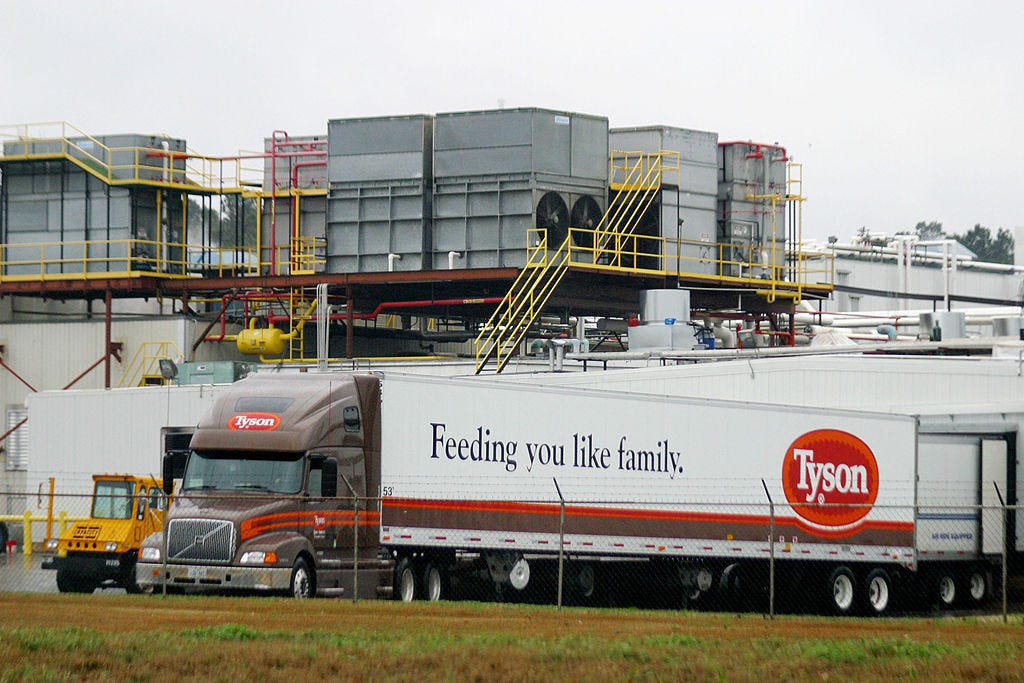How the sausage gets made
Investigative journalist Alice Driver on the meatpacking workers risking everything to challenge corporate tyranny
It’s been almost 120 years since Upton Sinclair chronicled the abuses of the meatpacking industry in The Jungle, inspiring federal oversight of food safety and eventually leading to the establishment of the FDA.
Unfortunately, Sinclair wouldn’t be surprised by today’s meatpacking industry. After more than a century of pushback, a handful of companies again dominate the industry. It lobbies aggressively, and usually successfully, against environmental and safety regulations that threaten profits. It surveils and threatens its workers to keep them from speaking to the media and to sniff out hints of union organizing. And meatpacking — one of the country’s most dangerous industries — relies on the labor of immigrants and refugees, whose economic precarity and legal vulnerability leave them more vulnerable to exploitation.
Donald Trump was a meatpacking industry ally during his first term, and in the spring of 2020, industry lobbyists wrote parts of his executive order designating meatpacking plants “critical infrastructure,” allowing them to stay open during early Covid lockdowns. With DOGE-led purges leaving federal safety regulators even more underresourced than ever — and unsure if they’ll survive at all — the industry is lobbying to loosen regulations even further. The corporate tyranny that reigns in meatpacking plants seems set to continue.
But as the investigative journalist Alice Driver shows in her new book, Life and Death of the American Worker: The Immigrants Taking on America's Largest Meatpacking Company, workers are fighting back.
Driver profiles workers at a Tyson Foods chicken plant in Arkansas as they tell their stories, find “joy in rebellious acts,” and train in worker-to-worker organizing. We spoke with Driver about how efforts like these might offer a path forward for challenging corporate (and political) tyranny, and the “moral beauty” of the human beings whose exhausting, insecure, and usually anonymous labor powers the American economy.
You write that “nothing is more American than meatpacking.” What do you mean by that?
I think of that in terms of the way that meatpacking has been used politically. You can go through different time periods, thinking of cowboys, thinking of cattle, or even in this past election, the way that meat has been used by the party in power to represent masculinity. Think of the different ways that meat has been used in political campaigns or imagery, mostly of what it means to be a man, which I think is interesting when contrasted with who is producing our meat.
One of the ways that the meatpacking industry and Tyson Foods seem like a microcosm of American business more broadly is their reliance on labor from immigrants, refugees, and undocumented people. Why is the meatpacking industry so reliant on those communities?
The meatpacking industry is really representative of the food system in the United States, which is reliant on immigrant labor. And part of this is because working in meatpacking is one of the most dangerous jobs in the United States. The majority of the labor force is made up of immigrants and refugees, many of whom are undocumented, and also imprisoned people and children. In Arkansas, the Department of Labor is investigating child labor, and that includes at Tyson Foods.
In terms of the reliance on immigrant labor, there’s several factors. At any given plant, you have workers who speak up to 50 different languages. Many of the people in my book are illiterate. They do not know their rights. They have trouble accessing really basic systems. They’re often presented with information and legal forms while they’re at work, in English. And so it creates a situation where it’s easier to underpay or manipulate the workforce.
From the company’s perspective, that vulnerability is an asset. Can you explain how that works?








